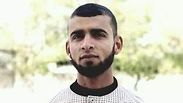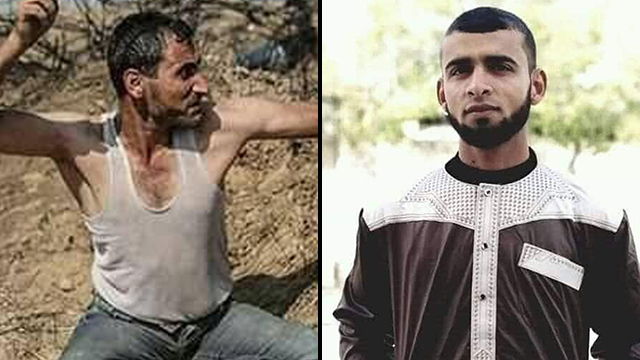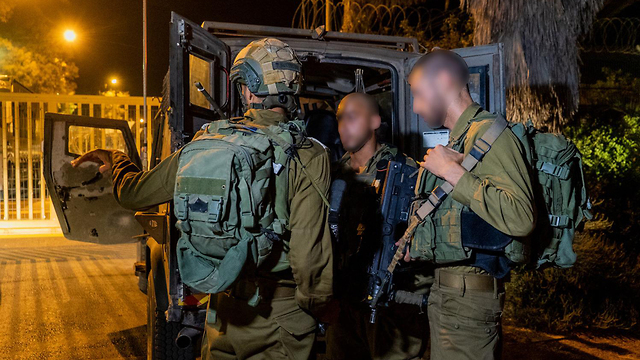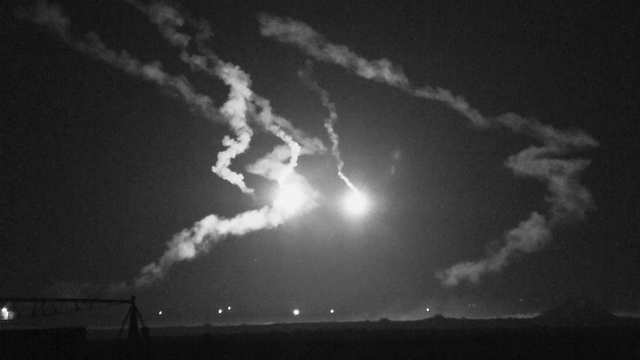
Gaza infiltration should be wake-up call for IDF
Analysis: While the gunman appears to have been seeking revenge for the death of his brother in a clash last year, and the damage was minor, it would behoove the Israeli military to change its routines on a regular basis
From a preliminary review, however, it seems that the gunman may have been taking revenge for the death of his disabled brother in a border clash last year and died as a martyr.

The Palestinians in the West Bank and Gaza Strip are more than familiar with the open-fire orders for IDF soldiers, which state that in the event of a life-threatening danger, the response is to shoot to kill.
In such a situation, someone who actually commits suicide – and who is a member of a religion that forbids it - is considered to have been killed fighting the IDF.
It sometimes happens, both in the West Bank and Gaza Strip, that young Palestinians, whether due to mental health issues or a family conflict or even criminal entanglement, confront IDF soldiers with a clear understanding that it will lead to their deaths.
In many cases, however, a suicide attack driven by the desire for revenge on Israel and the IDF for killing or injuring a family member or close friend. It is likely that this was the main motive of the terrorist killed Thursday morning in the confrontation at the Gaza fence.
The attacker is known to have been part of a Hamas "restraining force" at the border and this fact could largely explain his actions and the way in which IDF forces in the area responded.
In any event, the incident does not appear to have been part of a sophisticated military plot, such as an attack designed to lure IDF troops into the area where they could be ambushed or hit by mortars and anti-aircraft missiles fired by other Hamas fighters.
Nor was it a diversionary tactic during an attempt to carry out a broader attack or infiltrate an Israeli community elsewhere.
Instances of Palestinian infiltrations and attempted infiltrations from Gaza into Israel occur daily.
In most cases, these are job seekers trying to enter Israel or despairing Palestinians who prefer life in an Israeli jail to the hardships of Gaza.
This is, of course, different to attempts by Palestinians to cross the fence during riots, for which there are stringent open-fire rules to shoot at the lower leg.
If a Palestinian infiltrator is unarmed, he is normally returned to the Gaza Strip. But if he is armed, even with a knife, he is arrested, tried and jailed in Israel.
Therefore, most Palestinians who cross the fence in order to be arrested and jailed for a long period of time carry in their pockets either a knife or a home-made improvised grenade. In such cases, they are tried for life-threatening security offenses and imprisoned as security prisoners.
The IDF has good command over the fence, using cameras and sensors to constantly monitor the area, as well as observers who watch every movement within the Strip.
Another means of control is the so-called "security parameter" - a buffer on the west side of the perimeter fence that is supposed to be empty of people or items that would block the monitors' line of sight. It is there to provide advance warning of anyone trying to reach the fence and even targets them if they do not retreat after a warning.
The width of this perimeter can be changed – at the moment it is 100 meters wide. No one is allowed to enter this area under an agreement brokered by Egypt, and Hamas special forces oversee its implementation.
Anyone entering the security perimeter is treated as a suspected infiltrator and is sometimes fired upon. This is what happened two weeks ago, when IDF troops shot dead a Palestinian gunman who entered the perimeter.
The gunman turned out to be a Hamas operative whose job it was to prevent Palestinians from entering the forbidden area. The IDF apologized and promised to tighten its procedures, but Hamas vowed to avenge his death.
Therefore, there may well be a connection between Thursday incident and the accidental killing of two weeks ago. The infiltrator also was a Hamas man, and may have been on a revenge mission either sent by the organization or acting on his own initiative after the death of his brother.
The IDF must always treat those who enter the security perimeter with suspicion. As such, some questions do arise about the conduct of the troops that intercepted the gunman.
1. Did those troops monitoring the area spot that the gunman was armed with a long-range weapon (in this case a Kalashnikov) and did they notice that he was carrying it as he crossed the fence? (Granted, the gun could have been inside a bag or hidden under his uniform, and heavy fog often appears in the morning in the Gaza Strip, making it difficult for anyone to notice details.)
2. Did the intercepting force know that the infiltrator was armed?
3. Did the monitors or someone else in the field have constant sight of the gunman after he crossed the fence? Did the intercepting force take into account that its target was armed?
The fact that the wounds sustained by the IDF troops were relatively minor, and the fact that the gunman was located and neutralized shortly afterwards indicates that there were no serious operational failures by the IDF force.
The event was limited in scope and may have been only the result of a private revenge plan by the Hamas operative. But it could also be something far more serious, and, given the rising tensions in the Gaza Strip, it is surely worthwhile for the IDF to refresh its familiar procedures from time to time.












